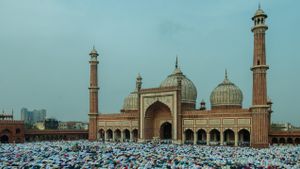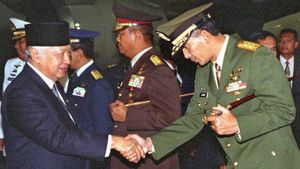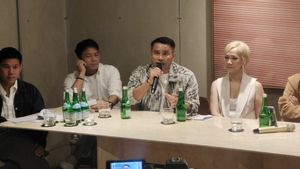JAKARTA - The commemoration of Anti Corruption Day or World Anti Corruption Day is still an important moment in Indonesia. Resolution of the United Nations (UN) agreement to combat corruption.
During the convention, there were only three countries that were arguably the most 'clean' from corruption. Referring to the 2018 Corruption Perceptions Index (IPK) issued by Transparentcey International, the three countries came from Scandinavian countries, namely Denmark, New Zealand and Finland.
All three consecutively received scores of 88, 87, and 85. This means that corrupt practices almost never occur in the country. This is of course inversely proportional to Indonesia's low GPA, which has to be ranked 89 out of 180 countries.
Maybe Indonesia needs to learn from the three countries with the highest GPA. Although there is no single way, we can add references to how the three countries maintain their CPI.
1. Denmark
The first country to receive the lowest corruption perception index is Denmark. There is an integrated system for law enforcement officers in the academic field. This is done to provide their understanding and commitment to eradicating corruption.
Reporting from hukumonline , the Danish Ambassador to Indonesia, Rasmus Abildgaard Kristensen once said that being free from corruption is not enough. So, since they are in the academy (police) they will spend a lot of time specifically in the training to combat corruption.
Apart from a strong commitment to eradicating corruption, the government continues to strive to be transparent to the public. Even the Danish Parliament will not grant immunity rights for members of their parliament who are involved in corruption cases or other criminal offenses.
According to Kristensen, the two spearheads of corruption eradication in Denmark. Both are not police officers or anti-corruption agencies. But the Ombudsman and auditors of financial institutions (such as BPK in Indonesia) will play a role in the field of supervision.
2. New Zealand
This small country in the Southeast of the Australian continent is ranked second cleanest in eradicating corruption. New Zealand has its own way of getting rid of corrupt rats that are eating away at its country's finances.
According to STAN State Financial Polytechnic Lecturer who received the scholarship " The New Zealand Asean Scholarship Award 2014 ", Rudy M Harahap, there are several things that can be considered why New Zealand can protect the country from corruption. The first is because the country adheres to a parliamentary system. Thus, ministers automatically become members of parliament.
"The advantage is that national policies can be formulated through direct political positions in parliament between the ministers who lead the ministries / institutions face to face with politicians from the opposition parties," Rudy said in his article published by detik.com.
After the debate in parliament was over, the bureaucratic professionals in the ministry immediately implemented the policy. As a result, it is not possible for ministers or members of parliament to directly intervene in the process of executing political policies at institutions. Implementation is left to the chief executive officer (CEO) or some sort of secretary general of ministries or institutions if in Indonesia, who is directly elected by the State Civil Apparatus Committee (KASN) or the civil service commission .
3. Finland
Apart from the education system which is admired by many countries. Finland has also succeeded in cutting the bureaucratic system that has allowed corruption to occur.
The bureaucratic system is concise and not meandering, allowing Finns to take care of administrative matters at only a few levels. One-stop service was also built by Finland which adopted the Swedish government bureaucratic system, during the period 1150-1809. The system continued until independence on 6 December 1917.
After independence, the Finnish administrative system developed. In 1990, the structure of the administrative system was reformed. The system is decentralized. Each region is given operational and economic independence of the municipalities .
Municipalities , carry out self-governing administration over its residents. The system is entitled to collect taxes on its residents, and is administered by a body elected directly by election, called the Municipal Councils , which then appoints a Major.
Apart from that of the Finnish administrative system there is such a thing as the Referendary System . In this system, all subordinates in the organizational hierarchy are obliged to ask questions regarding all decisions made by their superiors.
In the referendary system , employees are allowed to make an overview of the problems of related rules, including identifying alternative decision options issued by their superiors. If there is a contradictory decision, the working employee has the right to provide a record stating their disapproval of the rule. In other words, workers are legally responsible for any decisions or policies that are taken.
The English, Chinese, Japanese, Arabic, and French versions are automatically generated by the AI. So there may still be inaccuracies in translating, please always see Indonesian as our main language. (system supported by DigitalSiber.id)













